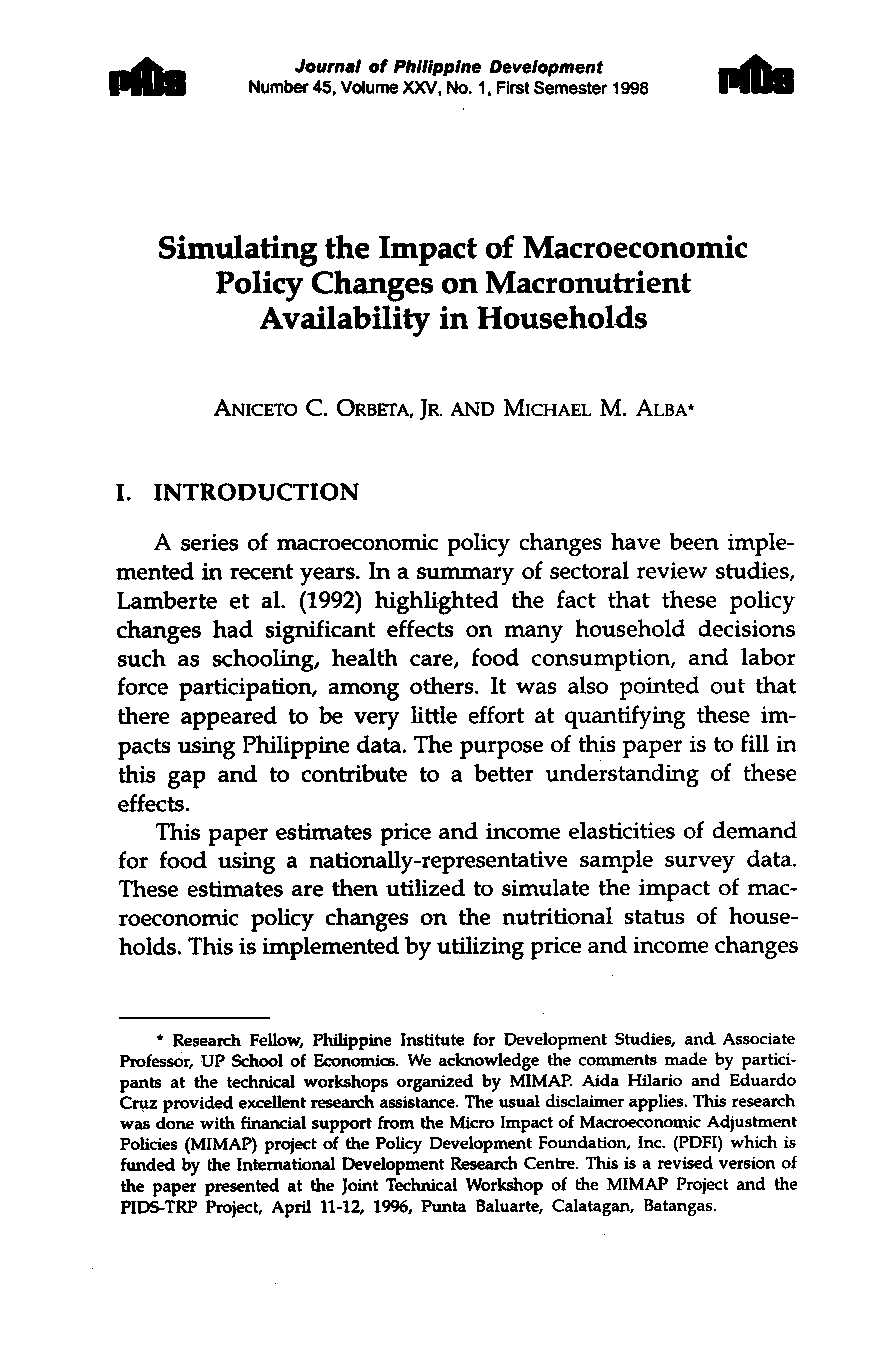Abstract
This study estimates a system of food demand equations utilizing nationally representative survey data. These estimates are then used to set-up a model that can use price and income changes from simulating a general equilibrium model to determine the impact of changes on macroeconomic policy on the nutritional status of households. Results indicate that the tariff reform program has a more progressive impact on nutrition than on income.
Citations
- Aldaba, Fernando T.. 2002. Philippine development: A research journey through the Philippine Journal of Development. Philippine Journal of Development PJD, 29. Philippine Institute for Development Studies.
- Mutuc, Maria Erlinda M., Suwen Pan, and Roderick M. Rejesus. 2006. Household vegetable demand in the Philippines: Is there an urban-rural divide?. Southern Agricultural Economics Association.
- Mutuc, Maria Erlinda M., Suwen Pan, and Roderick M. Rejesus. 2007. Household vegetable demand in the Philippines: Is there an urban-rural divide?. Agribusiness 23, no. 4, 511-527. John Wiley & Sons, Ltd..
- Nirmali, S.A.N and J.C. Edirisinghe. 2010. Food demand elasticities, price changes and calorie availability of households in the western province of Sri Lanka. Sri Lankan Journal of Agricultural Economics, 12, pages 1-13. Sri Lanka Agricultural Economics Association (SAEA).
Full Issue
SHARE
